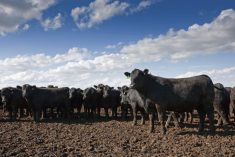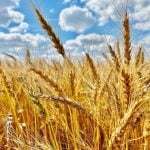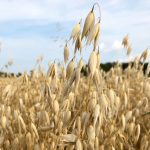Buenos Aires / Reuters — Argentina’s wheat plants were not hit by frost over the weekend as feared but strong rainfall since Saturday has generated excess humidity that could cause an outbreak of disease in the crop, a meteorologist said on Monday.
Weather experts last week warned of the possibility of severe spring frosts in the agricultural powerhouse that would have seriously impacted Argentina’s 2014/15 wheat crop which is in an advanced stage of growth.
“There was a lot of clouds between Friday and Saturday which moderated the cold spell,” said meteorologist German Heinzenknecht at the Applied Climatology Consultancy, or CCA.
Read Also

U.S. grains: Soy, corn futures weaken on harvest pressure, firm dollar
Chicago | Reuters – U.S. soybean and corn futures fell on Thursday on seasonal pressure as the harvest expanded in…
Argentina is one of the world’s top exporters of wheat.
“What is interfering now … is the rain,” he said. “We had 150 to 160 mm of rains in the last 10 days. There have not been floods but the issue of diseases becomes more problematic. Perhaps this will have an impact on the yield.”
The Rosario grains exchange said the rainfall could also affect the planting of soybeans in the world’s No. 3 soybean exporter.
“The strong volume of water registered could cause new setbacks in the planting of the oilseed due to lack of adherence and problems of access to the plots in the zones most affected,” the exchange said.












